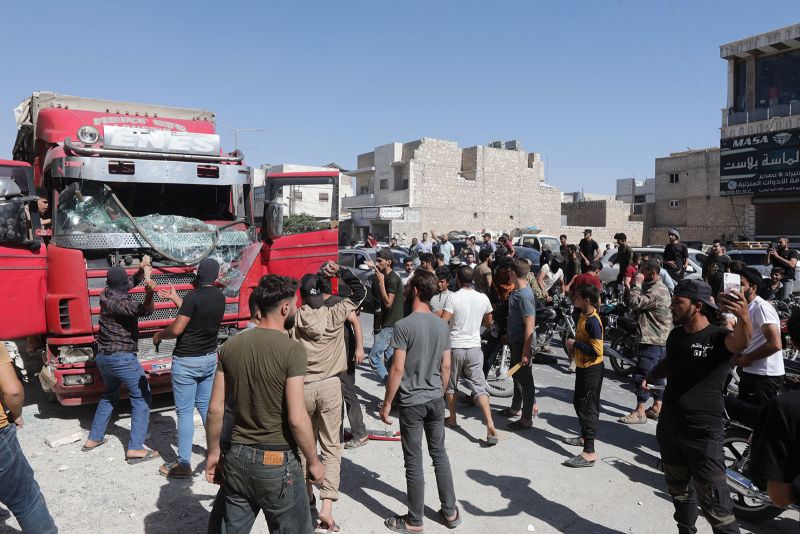In recent days, the tension between Turkish locals and Syrian refugees residing within the country’s borders has escalated into a surfeit of protests, turmoil, and riots. At the heart of the chaos, according to Turkish officials, is the meddling influence of social media. A number of misleading narratives and emotionally charged posts have instigated the sharp rise in hostility towards Syrians, causing a wave of anti-Syrian sentiment. Despite these challenging circumstances, Turkish officials are making a concerted effort to foster calm and peace amongst the population, using various strategies to extinguish the fires of discord.
Social media has played a central role in eliciting hysteria amongst people, by propagating unfounded claims and fueling incendiary narratives. Turkish authorities believe routine disagreements and misunderstandings which typically would have been resolved locally and peacefully are now escalating into larger scale instances of violence due to the amplification effect of social media. This amplification effect has the power to distort reality, exaggerating and sensationalizing trivial incidents, a phenomenon that has triggered misunderstanding and distaste among locals towards Syrian refugees.
Turkish officials have underlined the significant role misinformation and fake news play in these recent uprisings. Tufan Köse, a Deputy of the ruling Justice and Development Party (AKP), likened the current condition to a witch hunt. In rebuking the false narratives, Köse emphasized, Hatred can never be a guide; conscience will. This perspective underscores how social media can rapidly manipulate public opinion, causing ordinary citizens to behave antagonistically towards refugees based on falsified or distorted information.
In response to this growing anti-Syrian sentiment, Turkish authorities are working tirelessly to restore peace and mitigate further disagreements. The police have increased their presence in areas where such riots are happening to ensure safety and law enforcement. In addition to amping security, a de-escalation strategy has been initiated to suppress the flared tensions. This strategy includes educating both the locals and refugees about each other’s customs, traditions, and cultures to reduce instances of misunderstanding, while also reminding the population about the humanity and respect that every individual deserves.
Moreover, to undermine the impact of social media hysteria, Turkish officials are actively debunking false narratives by communicating the correct information to the public. By using a combination of official government social media accounts and statements from notable figures, the government aims to dispel apprehension by revealing the truth behind such misleading narratives. Simultaneously, they are urging people to refrain from spreading unverified claims and urging locals and refugees alike to report any suspicious activity to the security forces.
The government is also collaborating with civil society organizations to involve the public actively in problem-solving. By involving communities at a grassroots level, government officials aim to rebuild trust and understanding between Syrians and locals. From community events to educational programs, these initiatives aim to foster a spirit of togetherness, emphasizing that despite differences in nationality or culture, a peaceful coexistence is possible.
In summary, although the anti-Syrian riots provoked by social media craze have shaken the social fabric within Turkey, the government’s resilience and commitment to peace-building and truth-telling, combined with grassroots efforts, are pivotal in managing and resolving this crisis. It showcases a united front in quelling the spread of misinformation and promotes a peaceful, harmonious society that values each of its members irrespective of their origin. It serves as a living testament to the power of concerted collective effort, prudent leadership, and consistent communication.




